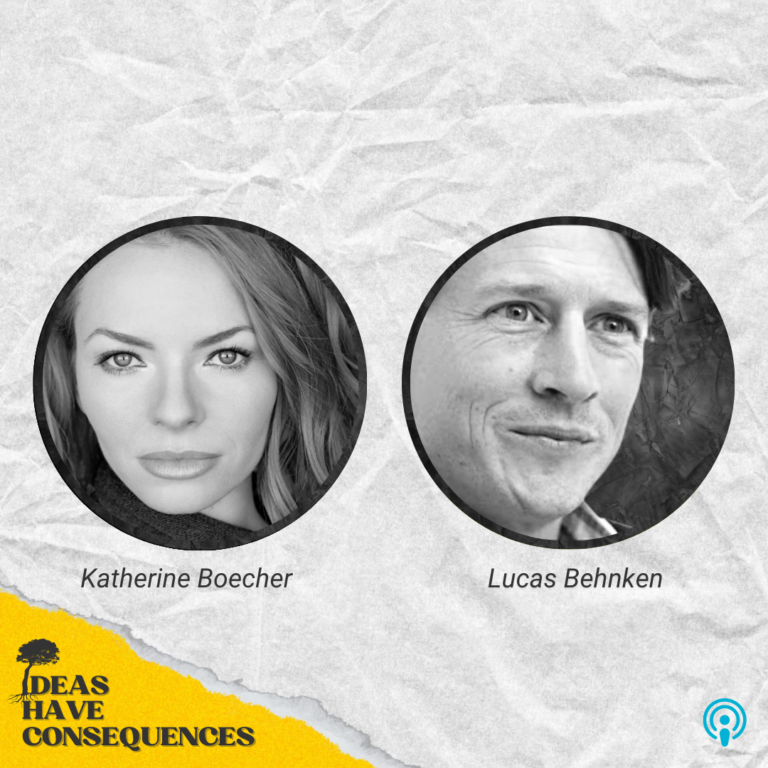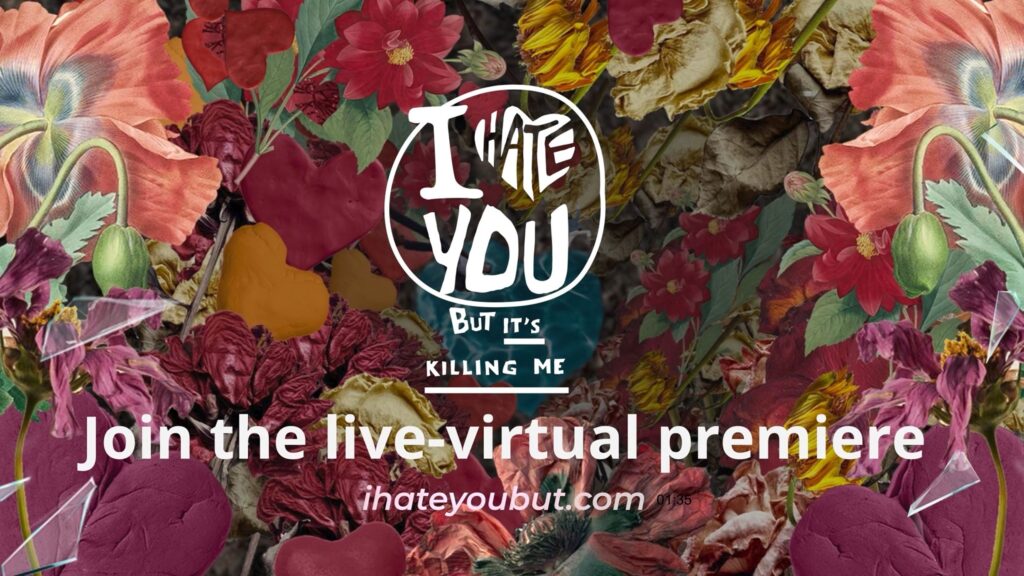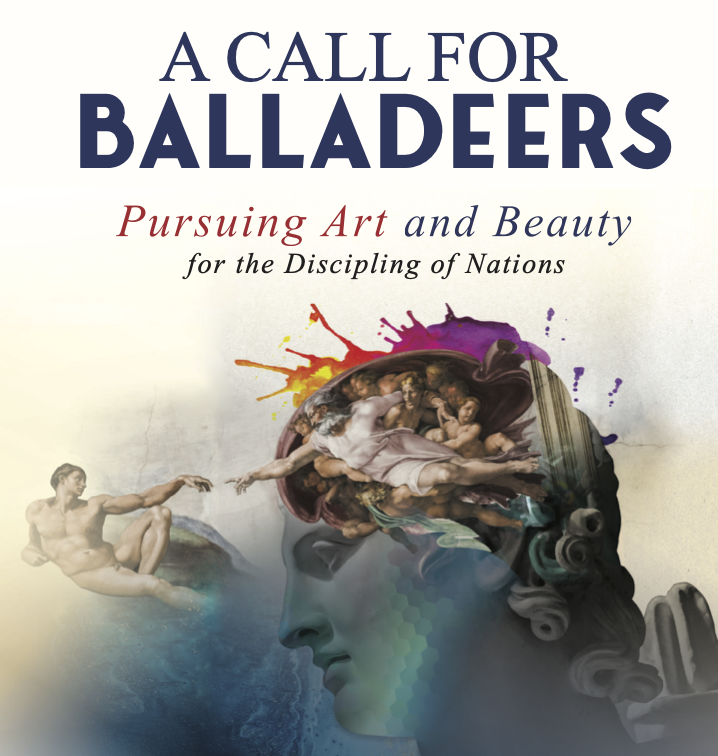At a Glance
What does it look like to be salt and light in Hollywood and the world of filmmaking at large? Today we are joined by actors and producers Lucas Behnken and Katherine Boecher, who have dedicated their lives to turning film into a mission field for the gospel. Creating movies and documentaries “with an emphasis on compassion, forgiveness, justice, and generosity.”
We discuss how to make a difference in the world of film as Christians, how to make a genuine difference and impression on people who are gripped by powerful stories, and focus on their upcoming documentary called, “I Hate You But It’s Killing Me” and discuss the intense grip that hate has on so many people and the only solution to it.
What You'll Hear
Chapter 1: Introducing Lukas Behnken and Katherine Boecher (1:42)
- Lukas and Katherine are actors in Hollywood, and founded Sterling Light Productions.
- Lukas was born to YWAM missionaries and grew up in Herlot Castle, Germany
- Gripped from a young age with a desire to tell stories, Lukas moved toward acting and later producing.
- Katherine was a child model from Texas who got serious about her faith and purpose after meeting Lukas, and they later married.
Chapter 2: Sherry Theater and Mulli (12:50)
- After getting married, they started Sherry Theater with a group of acting friends.
- The first film they did together was Mully, which is about Mully Childrens’ Family, an organization that saves children in Kenya.
- They also put together an acting school and a film festival, and tried hard to cultivate the arts where they were.
- Their current project is Sterling Light Productions.
Chapter 3: Intentional Art-Making (19:12)
- Lukas and Katherine try to not only cultivate the arts but also to cultivate places that honor Christ.
- They do this by loving and knowing the people around them, and intentionally hire people with few opportunities, such as people who have been in prison.
- By modeling a different, more Christ-like way of doing film, they hope to show others in the industry a better way to make movies.
- The “evils of Hollywood” are not things that are intrinsic to Hollywood itself. Hollywood creates content that sells, and so it reflects culture and its desires.
Chapter 4: Christian Film-Making (31:44)
- Christian film-making started to come back in the early 2000s, but was mostly spurred by non-professionals who wanted to share Christian messages and stories through film.
- As time went on, though, more professionals started getting involved in faith-based productions, and nowadays most major studios have a faith-movies arm because there is demand for it.
- However, while faith-based film content has grown, it has also at times struggled to make excellent movies to a high standard.
Chapter 5: I Hate You, But It’s Killing Me (39:17)
- I Hate You, But It’s Killing Me is the most recent film from Lukas and Katherine.
- The film is a documentary loosely based off the book, “Conquest Over Hatred.”
- One of the people interviewed for the documentary, Donnie Williams, became a karate champion because, “it let him legally kick white people’s teeth in.”
- One of the themes of the documentary is discovering the roots of hatred. Donnie’s past created a hatred for white people, which he eventually overcame.
- People connect to authenticity and hearing other people’s stories, which Lukas and Katherine really wanted to use to promote a positive difference.
Chapter 6: Sterling Light Productions (54:05)
- When Lukas and Katherine make films and take acting jobs, they want to start a conversation and a change based off of the role.
- They don’t just release movies, they put together study guides and campaigns to be a companion to the movie to help promote change.
- After Mully, which was about saving abandoned kids in Africa, they put together a campaign to help American families adopt that led to hundreds and even thousands of adoptions.
- The hope for I Hate You But It’s Killing Me is to not just start a conversation about hatred, but to start conversations about healing and forgiveness.
Using the link above, you can read the transcript, listen along, and adjust the speed of the podcast while you listen.
When somebody's so deeply wounded you, you feel that need for justice, somebody's got to pay. And that's part of the gospel, that payment’s been made through Christ on the cross. Then because of that, forgiveness is offered.
-Scott Allen (1:11:38)

Go Deeper
Sterling Light Productions
Sterling Light Productions is a motion picture production company directing attention onto fictional and non-fictional stories that provoke deep questions about why we are who we are, seeking to provide insight into these matters.
Through filmmaking — as a team of producers, directors, writers and actors; we address the nature of the human heart — with an emphasis on compassion, forgiveness, and generosity. We desire to give new thought to difficult questions in the moral dilemma of our present time.
I Hate You But It’s Killing Me
I Hate You But It’s Killing Me is a Documentary made by Sterling Light Productions and Winter Star Productions. It is a film examining how hate impacts people and how to heal and forgive in light of that hatred. I Hate You But It’s Killing Me also has a companion course that has additional videos and content meant to help you grow and learn how to process through hate. You can also check out the I Hate You But It’s Killing Me TikTok here.
A Call for Balladeers: Pursuing Art & Beauty for the Discipling of Nations
The art we consume changes the way we think, so where are the artists who speak Godly truth through their art, the balladeers that disciple the nations through their respective mediums?
We need a new generation of balladeers. Culture is upstream from economics, politics and society. Who shapes culture more than anyone else? It is the artists, those who consciously create or critique culture with their art. These people may be called modern-day balladeers. They are singers and songwriters, playwrights and filmmakers, writers and poets, painters and sculptors, choreographers and composers, architects and fashion designers. From these gifted artists we must call forth a movement of modern-day balladeers.
“As I have traveled around the world, I have been convicted about the need for Christian artists to intentionally and prophetically speak to their nations through their art. I have felt a burden to complete this book to help artists understand their calling, their influence, and the firm biblical foundation for their vocation.” — Darrow L. Miller
Quotes
A huge part of everything we create is making sure that every single person on the team feels valued and valuable. -Katherine Boecher (21:33)
I think initially when making Christian film and Christian television first started to become popular again, in the early 2000s, it wasn’t the most skilled artists and creators in the industry that were doing it, it was people that really were hungry for that kind of content. And so they just jumped in and said, “We’re going to make it.” And as time has gone on, people who are more skilled who have just, I don’t want to badmouth the people that make the content that is hokey and corny. But people who are looking for a different level of excellence, shall we say, have become more committed to putting their neck on the line and saying, “No, I want to make this kind of content. And not only do I want to make this kind of content, but it has to be excellent, or I’m not going to do it.” -Katherine Boecher (33:05)
For a long time in Christian content. I think people were afraid of being too raw. There was almost this idea that it’s not acceptable or appropriate to show the real side of what life is like, to show the difficulties that everyday people go through that are Christian, or everyday people go through that have an encounter with Christ, that it isn’t this beautiful Easter egg kind of situation. And now, what I’m noticing is there is this huge tide turning, where people that are making Christian content, not only do they want it to be Christian or be faith-based content, but they want it to be honest and authentic. And people are hungry for faith that is authentic right now. -Katherine Boecher (34:50)
I think that saying that goes, “The only thing that evil needs to prevail is for good people to sit back and do nothing”, that there is this challenge and call to investment, for money, and for money to be poured in by the individuals that have money in the faith community, to pour in, to match, and invest just as much as the ones who are out to draw people into sin. – Lukas Behnken (36:32)
If God really is the WAY, the TRUTH and the LIFE, and we actually trust that, we believe that, then presenting people with an array of ideas, we should trust that God will lead them through that process of finding the truth if they’re actually honest and search for it. -Luke Allen (49:55)
When somebody’s so deeply wounded you, you feel that need for justice, somebody’s got to pay. And that’s part of the gospel, that payment’s been made through Christ on the cross. And then, because of that, forgiveness is offered. -Scott Allen (1:11:38)





